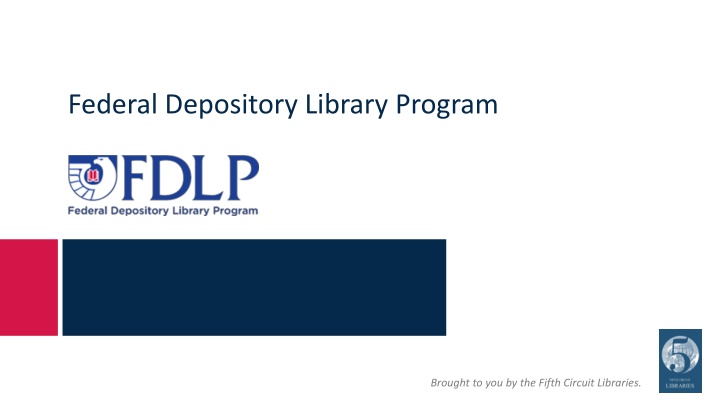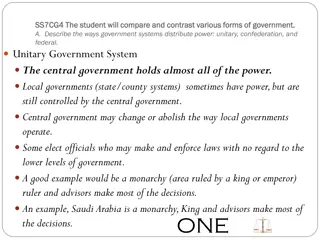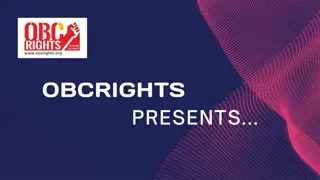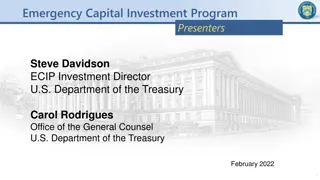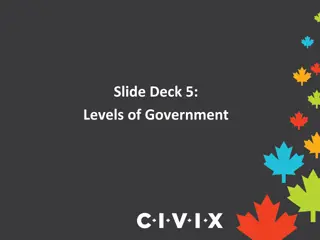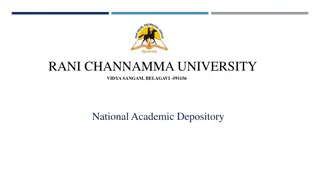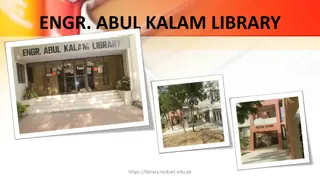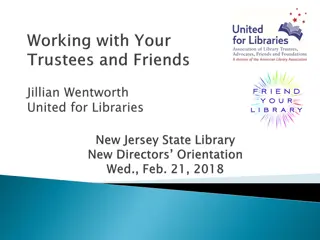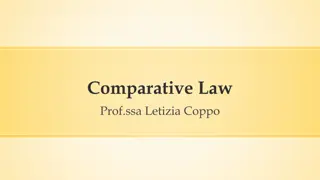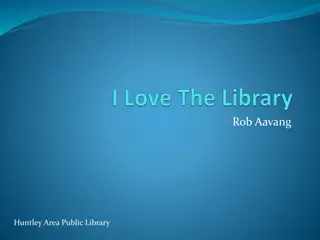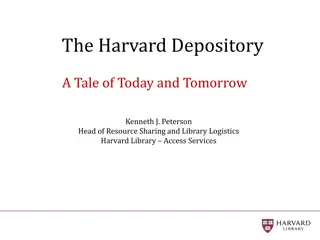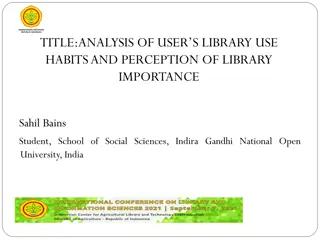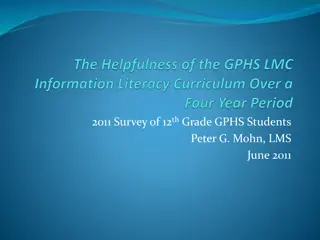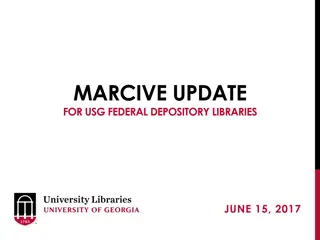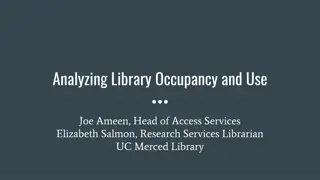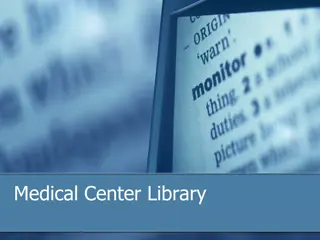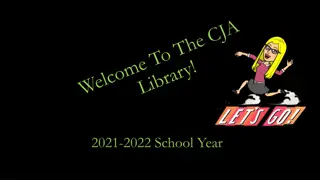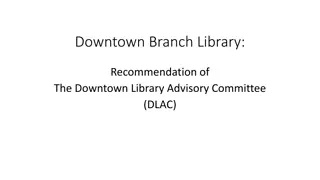Federal Depository Library Program: Providing Access to Government Information
The Federal Depository Library Program (FDLP) offers free government materials to libraries, ensuring public access to federal information. Established in 1813, the program disseminates resources across 1150 federal libraries, promoting transparency and accountability. Selective depository libraries like the Fifth Circuit Library curate specific federal documents, focusing on legal and congressional information through digital and tangible formats. Essential publications like the Code of Federal Regulations are accessible, aiding research and information dissemination for present and future generations.
Download Presentation

Please find below an Image/Link to download the presentation.
The content on the website is provided AS IS for your information and personal use only. It may not be sold, licensed, or shared on other websites without obtaining consent from the author.If you encounter any issues during the download, it is possible that the publisher has removed the file from their server.
You are allowed to download the files provided on this website for personal or commercial use, subject to the condition that they are used lawfully. All files are the property of their respective owners.
The content on the website is provided AS IS for your information and personal use only. It may not be sold, licensed, or shared on other websites without obtaining consent from the author.
E N D
Presentation Transcript
Federal Depository Library Program GOVERNMENT INFORMATION WITHIN REACH Brought to you by the Fifth Circuit Libraries.
WHAT IS THE FDLP? The FDLP or the Federal Depository Library Program provides free government materials to participating libraries.
MISSION: To provide free, ready, and permanent public access to Federal Government information, now and for future generations.
HISTORY OF THE FDLP The Federal Depository Library Program (FDLP) began in 1813. An act of Congress provided that one copy of the journals and documents of the Senate and House be sent to each university and historical society in each state. The Government Publishing Office (GPO) began administering it in 1895.
The GPO acquires information from government agencies and then disseminates it in digital and tangible formats to over 1150 federal libraries across the United States which are known as Federal Depository Libraries.
The Fifth Circuit Library is a selective depository library of 5.86%. This means we only select that percentage of all the federal documents available in the FDLP. Most of the selected documents pertain to legal and congressional information.
The Code of Federal Regulations, the United States Code and the Serial Set are examples of frequently used government publications in our library.
Some of these resources are available in more than one format. For example
CODE OF FEDERAL REGULATIONS (CFR) The CFR is the codification of the general and permanent rules published in the Federal Register.
CODE OF FEDERAL REGULATIONS (CFR) It is held by the Fifth Circuit Libraries. It is also available online beginning with 1996: https://www.govinfo.gov/help/cfr Scan the QR Code to access the CFR online.
FEDERAL REGISTER The Federal Register is the official daily publications of Federal Agencies.
FEDERAL REGISTER It is held by the Houston Library. The New Orleans Library holds issues up to 2017. It is also available online beginning with 1936: https://www.govinfo.gov/app/collection/FR Scan the QR Code to access the Federal Register online.
But wait! What is this symbol? This is a QR Code!
QR code stands for Quick Response Code. It is a type of two-dimensional barcode. Using your QR code reader app on your smartphone, simply scan the QR code to access digital content. There are many QR reader apps available for smartphones. Check your phone s app store.
QR CODES IN THE LIBRARY The New Orleans Library is introducing QR codes to the collection. In the stacks you will notice blue book stops that direct users to additional resources. Some of these contain QR codes that you can scan to access digital content. Note that many of these titles have this sticker, which indicates that these are part of the FDLP.
As these QR codes demonstrate, government publications are found in many places on the web and it can be hard to remember where to look. One website that makes it easier to find many of these government publications is govinfo.gov.
Govinfo.gov provides official publications from the United States government without charge. The website preserves content so that electronic documents are available for future generations.
WEBSITES OF INTEREST Congress https://www.congress.gov/ The Congressional website contains bills, committee reports, and calendars. Department of State https://www.state.gov/ The Department of State webpage has information on getting a passport, getting a visa, and travel advisories. Department of Veterans Affairs https://www.va.gov The Department of Veterans Affairs website has benefits information, health care materials, and various other resources for veterans. Food & Drug Administration https://www.fda.gov/ The FDA webpage has information such as drug recalls, food safety, medical device approvals. Internal Revenue Service https://www.irs.gov/ The IRS website has tax forms, information on tax reform, refunds status, and much more.
WEBSITES OF INTEREST National Archives & Record Administration https://www.archives.gov/ The National Archives website provides instruction on how to search the Archives, a guide to federal records, online exhibits, and how to orders copies of records. Social Security Administration https://www.ssa.gov/ The Social Security Administration webpage provides information such as retirement benefits and social security cards and numbers. United States Patent & Trademark Office https://www.uspto.gov The USPTO website contains a searchable trademark database, patent forms, and an overview of the patent process.
WANT TO LEARN MORE? Check out https://www.fdlp.gov/
